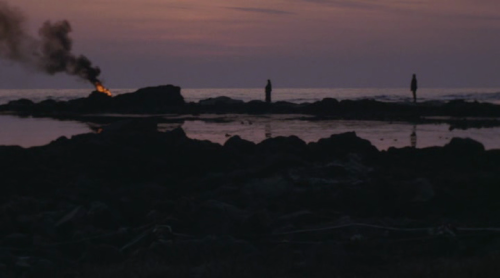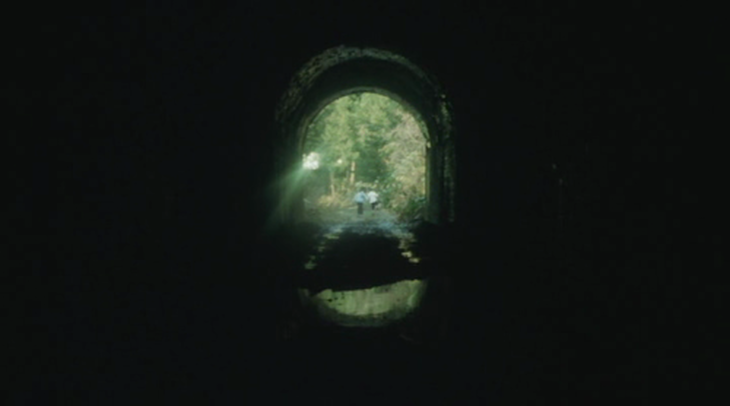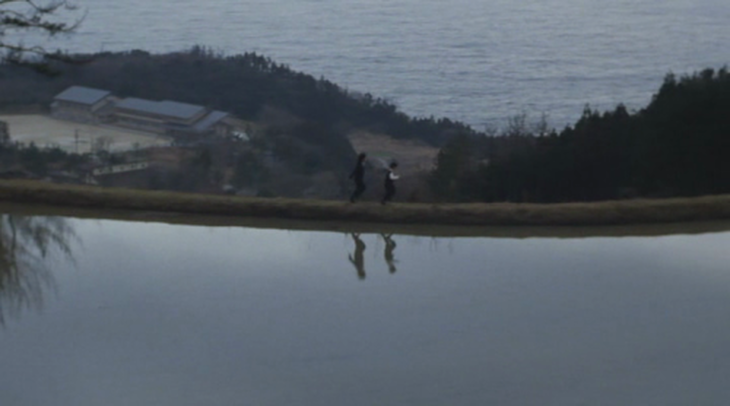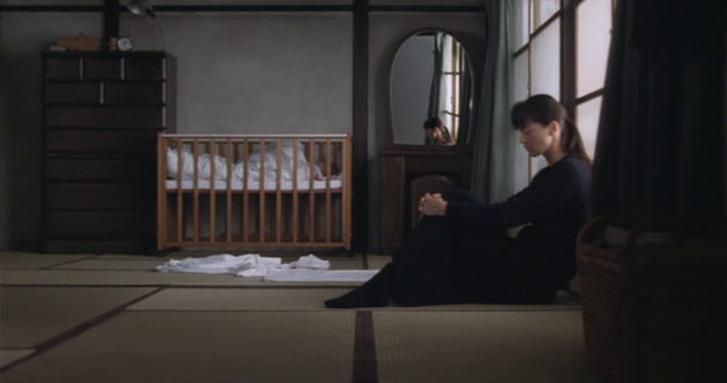 Contemplative, assured, and beautifully-photographed, Hirokazu Koreeda's Maboroshi is a film that profoundly captures the ebb and flow of life and death, sorrow and happiness, lightness and darkness, which finds the filmmaker expertly examining the effect of sorrow on the human psyche through the character of Yukimo. Happily married to Ikuo, a humble and hard-working man that loves her very much, Yukimo cannot seem to shake the stench of death, still haunted by the loss of her grandmother many years ago. Yukimo has recurring nightmares centered around her grandmother's departure many years ago, when she left home suddenly to go to the village of her birth to die. Unfortunately, Yukimo's haunting visions of death foreshadow another tragedy, when the young woman is awoken in the middle of the night by the police who explain that her husband has apparently committed suicide on the train tracks. There is a quiet stillness to Hirokazu Koreeda's Maboroshi, a film which attempts to get deep into the psyche of a character who struggles with tragedy. Using only natural lighting and being minimalistic in style, at least compared to most films today, Koreeda crafts a film primarily of wide angles and static shots, evoking the sense of sadness and isolation of Yukimo, a character who spends years in solitude after the tragic death of her loving husband. Nothing about this film is emotionally manipulative or forced in the slightest, with Koreeda showing a confidence in his direction that pays off, creating a realism centered around one woman's struggle with death that is organic and deeply resonant. There is absolutely nothing sentimental about Maboroshi, a film that shows great empathy for its character while never falling prey to cheap cinema tricks. Koreeda understands that importance of having much of this character's inner torment left unsaid or undefined, as attempting to cheaply have the character speak to such anguish is nowhere near as powerful. We, as the viewer, don't necessary understand exactly what Yukimo as a character is thinking, but it doesn't matter, as her loss and despair is palpable. Evoking Yukimo's inner torment, Koreeda even photographs some of the scenes in almost complete darkness, nothing but the characters' silhouettes, if that, being visible to viewer. As time passes, Yukimo meets Tamio, a widowed fisherman who lives in a nearby village with his daughter. The two fall in love, and Yukimo marries him. While she begins to find a new happiness in her relationship with Tamio, Yukimo still struggles with making sense of the apparent suicide of Ikuo, with the justification of his death being something that continues to haunt her. Just as darkness is used to evoke a sense of feeling early on, Koreeda's use of light is equally impressive. One scene in particular being a scene where Yukimo sweeps the stairs speaks to this. As she cleans, mostly in darkness, bursts of sunlight penetrate the darkness of the stairwell, a visual representation of this character starting to discover some semblance of happiness. Koreeda also uses the children to great effect, with quite a few scenes that find Yukimo's child and Tamio's child playing together, their exuberance and happiness prevalent. There is one incredible sequence that finds these two children running through tunnel eventually emerging from the darkness into the lush, green landscape on the other side - a sequence which visually captures the film's entire message. The juxtaposition of life and death, sorrow and happiness is what I believe Hirokazu Koreeda is trying to capture in this beautiful film, reminding the viewer that death and loss are merely a part of life but that doesn't mean we can let it define or control us. Yukimo is a character who is haunted by death through most of the film, attempting to comprehend or even control something she merely can't. Hirokazu Koreeda's Maboroshi is what I could describe as a perfect film -a piece of art that evokes a mood through visual storytelling that manages to be both deeply intimate and personal, while capturing the ubiquitous, yet fragile nature of life.
0 Comments
Leave a Reply. |
AuthorLove of all things cinema brought me here. Archives
June 2023
|



 RSS Feed
RSS Feed
